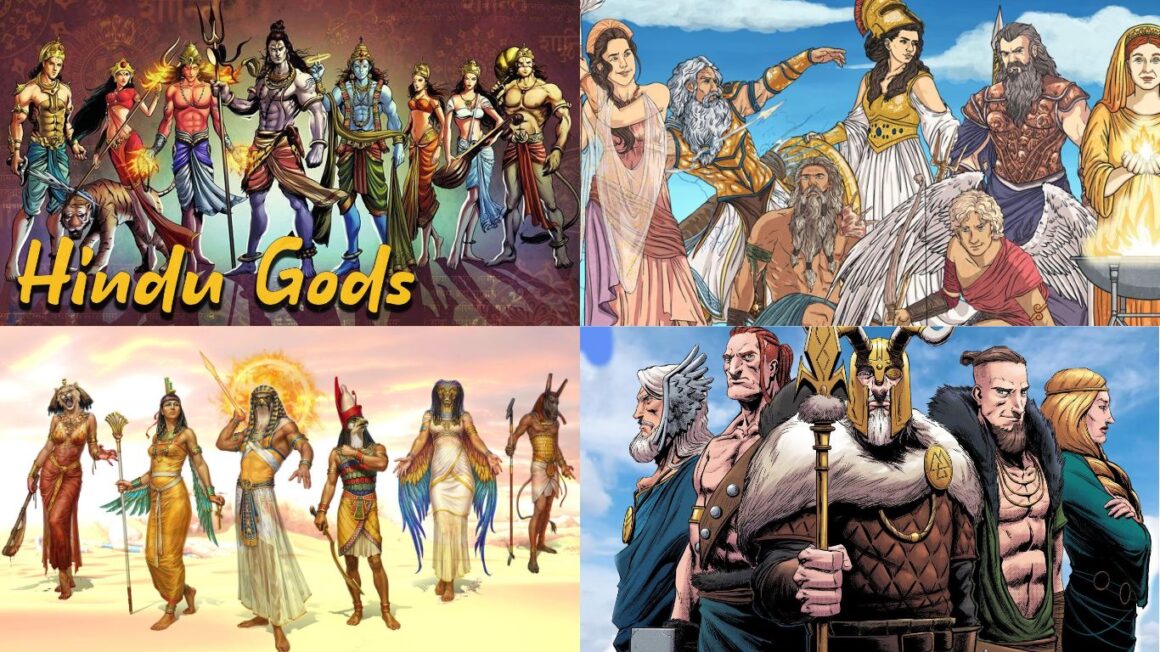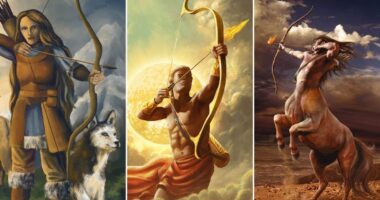Human history is replete with myths and legends that are woven into the fabric of cultures across the world. One of the most fascinating aspects of mythology is the pantheon of gods and goddesses that are believed to govern the natural world and influence human affairs. While some mythologies have only a handful of deities, others have a vast array of gods and goddesses that are integral to the stories and beliefs of that culture. In this article, we will explore the top 10 mythologies with the largest number of gods, and examine the unique characteristics and roles of each of these deities. From the Greek gods of Mount Olympus to the vast Hindu pantheon, we will delve into the fascinating world of mythology and discover the diversity and complexity of the gods and goddesses worshipped by cultures around the world.
Top 10 Mythologies with the Largest Number of Gods
Hindu mythology
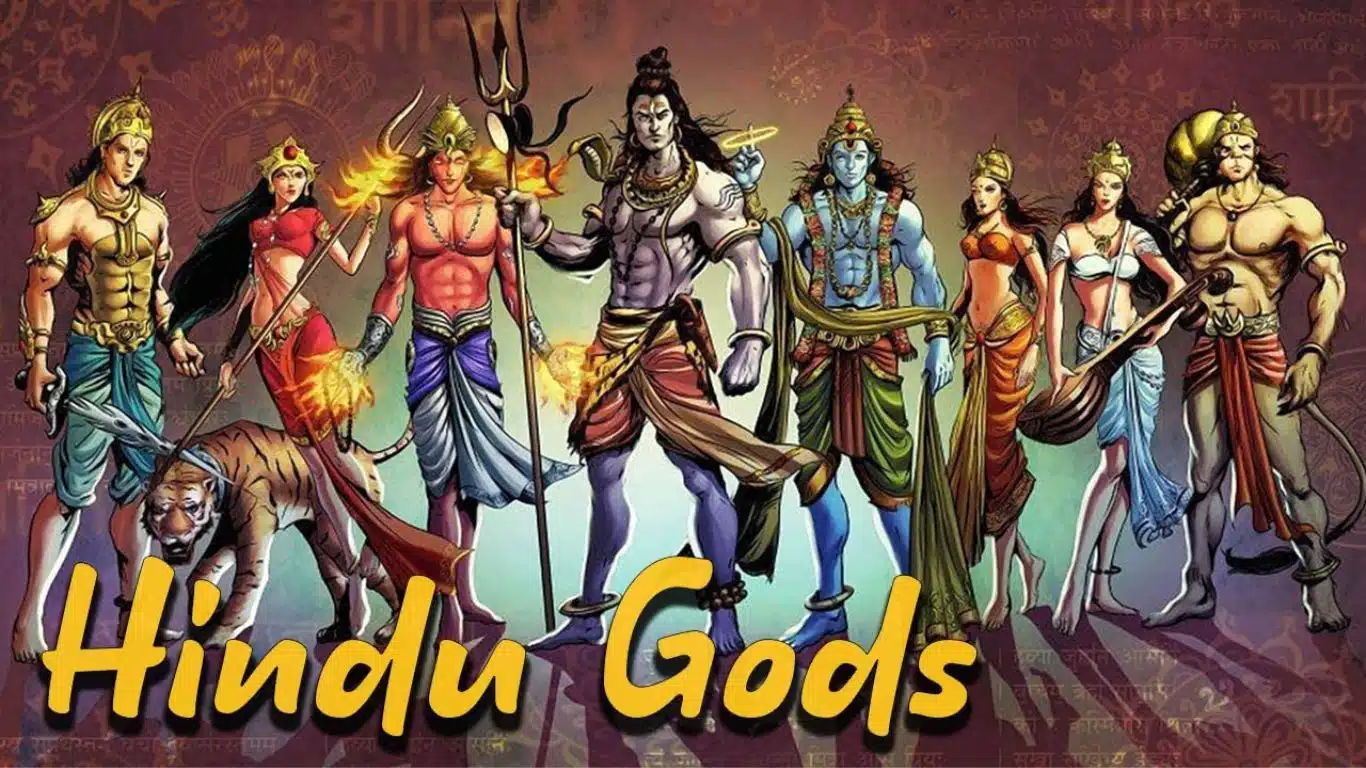
Hinduism is a polytheistic religion that originated in the Indian subcontinent and is believed to be the world’s oldest living religion. Hindu mythology includes a vast and diverse Number of gods and goddesses, which varies by region and tradition.
According to Hindu beliefs, the universe is cyclical and eternal, and the gods and goddesses play a vital role in the cosmic order. The Hindu pantheon includes three main deities: Brahma, the creator; Vishnu, the preserver; and Shiva, the destroyer. These three deities are known as the Trimurti and are considered the most important gods in Hinduism.
Apart from the Trimurti, there are countless other gods and goddesses, each with their own unique powers, attributes, and myths. Some of the most well-known gods and goddesses in Hindu mythology include:
- Lakshmi, the goddess of wealth and prosperity
- Saraswati, the goddess of knowledge, music, and the arts
- Ganesha, the god of wisdom, knowledge, and new beginnings
- Hanuman, the god of strength and devotion
- Kali, the goddess of destruction and transformation
The estimates of the number of gods and goddesses in Hindu mythology vary widely, ranging from 330 million to 33 million. These numbers are not meant to be taken literally but are instead symbolic of the infinite variety and diversity of the Hindu pantheon. In Hinduism, every god and goddess represents a particular aspect of the divine, and each is worshiped according to their unique qualities and attributes.
Egyptian mythology
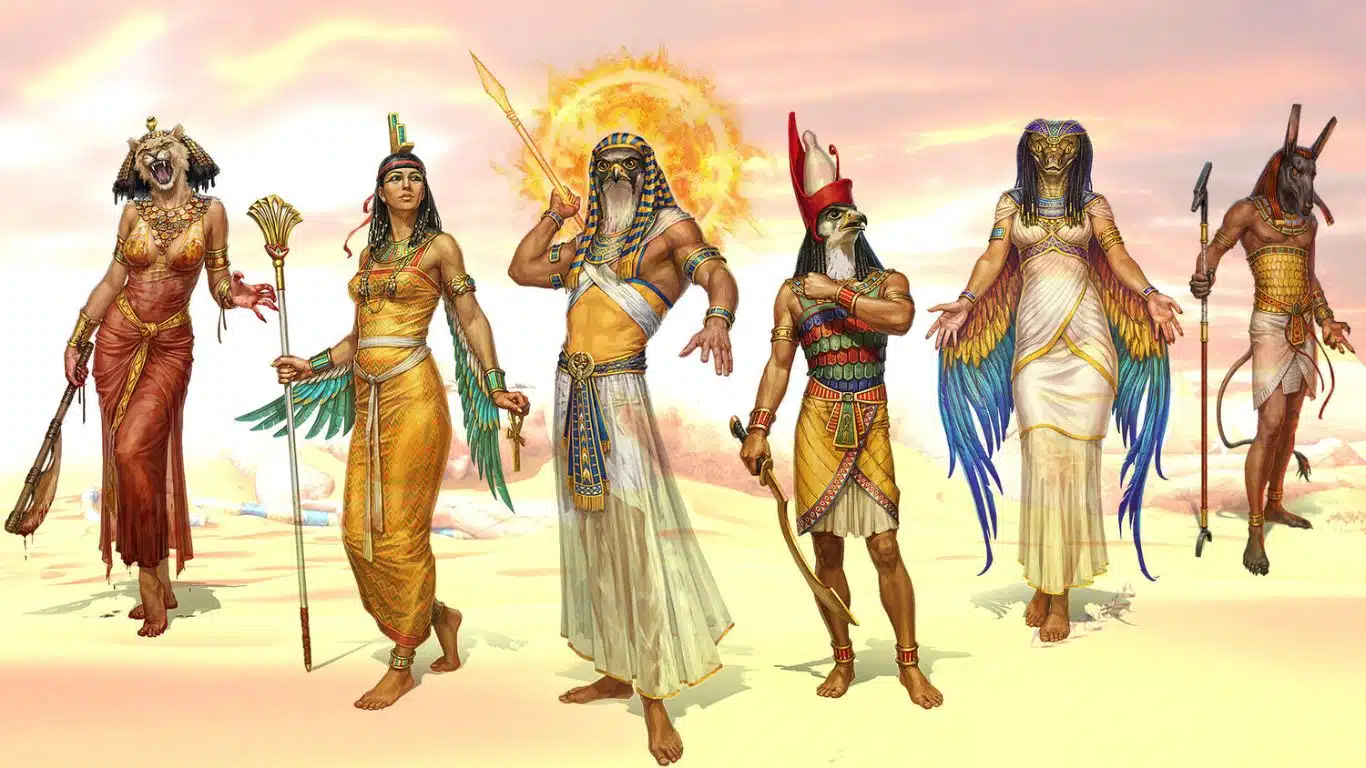
Ancient Egyptian mythology had a complex and diverse Number of gods and goddesses that played a significant role in the religion, culture, and everyday life of the ancient Egyptians. The Egyptian gods and goddesses were believed to have human-like personalities, emotions, and relationships, and they were associated with various natural phenomena, such as the sun, moon, stars, and Nile river.
Some of the most well-known gods and goddesses in Egyptian mythology include:
- Ra, the god of the sun and creator of the world
- Osiris, the god of the afterlife and fertility
- Isis, the goddess of magic, motherhood, and fertility
- Horus, the god of the sky and protector of the pharaohs
- Anubis, the god of embalming and mummification
- Thoth, the god of wisdom, writing, and knowledge
- Hathor, the goddess of love, music, and beauty
The number of gods and goddesses in Egyptian mythology is estimated to be over 2,000, although not all of these deities were worshiped by all Egyptians, and some were more prominent in certain regions or time periods. Some gods and goddesses were also associated with specific professions, such as Ptah, the god of craftsmen, and Ma’at, the goddess of truth and justice. The Egyptian gods and goddesses were depicted in art, sculpture, and hieroglyphs, and their worship was an integral part of daily life and religious rituals in ancient Egypt.
Greek mythology
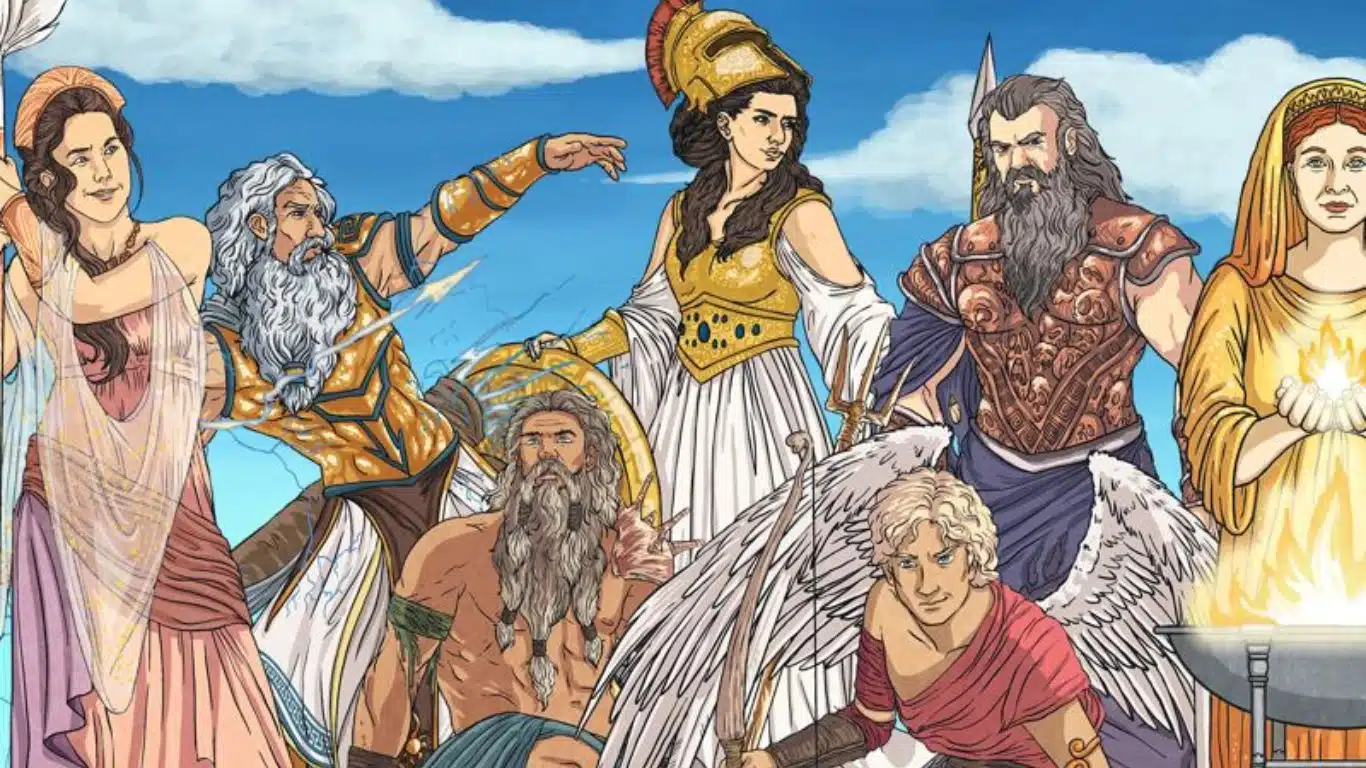
Greek mythology is one of the most well-known and influential mythologies in the Western world, and it features a vast number of gods and goddesses. The ancient Greeks believed that the gods and goddesses lived on Mount Olympus, and they were believed to have human-like personalities, emotions, and relationships.
Some of the most well-known gods and goddesses in Greek mythology include:
- Zeus, the king of the gods and god of the sky and thunder
- Hera, the queen of the gods and goddess of marriage and family
- Poseidon, the god of the sea and earthquakes
- Demeter, the goddess of agriculture and the harvest
- Athena, the goddess of wisdom, warfare, and crafts
- Apollo, the god of music, poetry, and prophecy
- Artemis, the goddess of the hunt and childbirth
- Ares, the god of war
- Aphrodite, the goddess of love and beauty
The number of gods and goddesses in Greek mythology is debated, with estimates ranging from 12 to over 100. The 12 Olympian gods, consisting of Zeus, Hera, Poseidon, Demeter, Athena, Apollo, Artemis, Ares, Aphrodite, Hephaestus, Hermes, and Dionysus, were considered the most important gods in Greek mythology. However, there were many other minor gods and goddesses, such as the Muses, the Fates, and the Graces, that played important roles in Greek mythology.
The Greek gods and goddesses were often depicted in art and literature, and their worship was an integral part of ancient Greek religion and culture. The Greeks believed that the gods and goddesses were powerful beings who could help or harm humans, and they offered sacrifices, prayers, and festivals to honor them and ask for their protection and favor.
Roman mythology
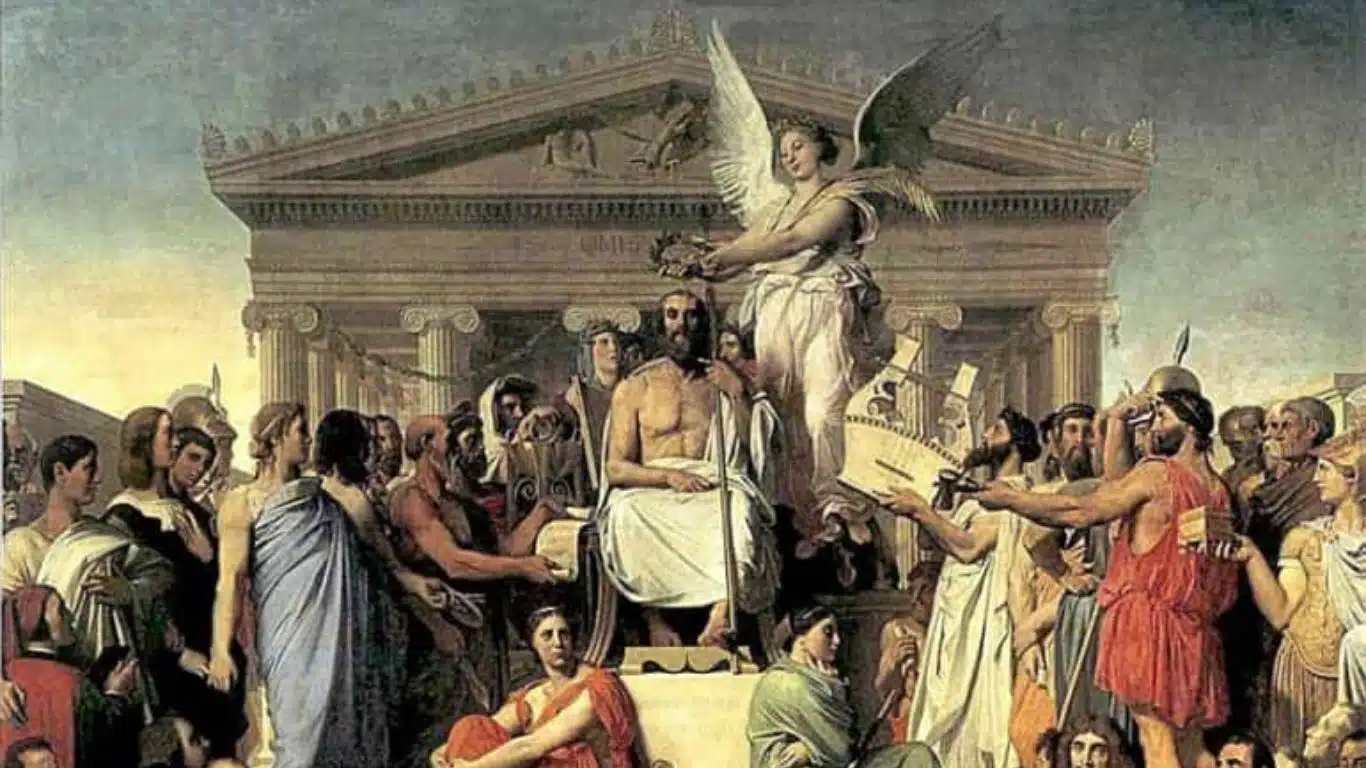
Roman mythology is closely related to Greek mythology, and the Romans adopted many of the gods and goddesses from Greek mythology, often with slight changes to their names and attributes. However, the Romans also had their own gods and goddesses, with over 20 major deities.
Some of the most well-known gods and goddesses in Roman mythology include:
- Jupiter, the king of the gods and god of the sky and thunder (similar to the Greek god Zeus)
- Juno, the queen of the gods and goddess of marriage and childbirth (similar to the Greek goddess Hera)
- Neptune, the god of the sea (similar to the Greek god Poseidon)
- Ceres, the goddess of agriculture and the harvest (similar to the Greek goddess Demeter)
- Minerva, the goddess of wisdom, war, and crafts (similar to the Greek goddess Athena)
- Apollo, the god of music, poetry, and prophecy (similar to the Greek god Apollo)
- Diana, the goddess of the hunt and childbirth (similar to the Greek goddess Artemis)
- Mars, the god of war (similar to the Greek god Ares)
- Venus, the goddess of love and beauty (similar to the Greek goddess Aphrodite)
In addition to the major gods and goddesses, there were also many minor gods and goddesses, as well as spirits and other supernatural beings, in Roman mythology. The Romans believed that the gods and goddesses were powerful beings who could help or harm humans, and they offered sacrifices, prayers, and festivals to honor them and ask for their protection and favor.
Norse mythology
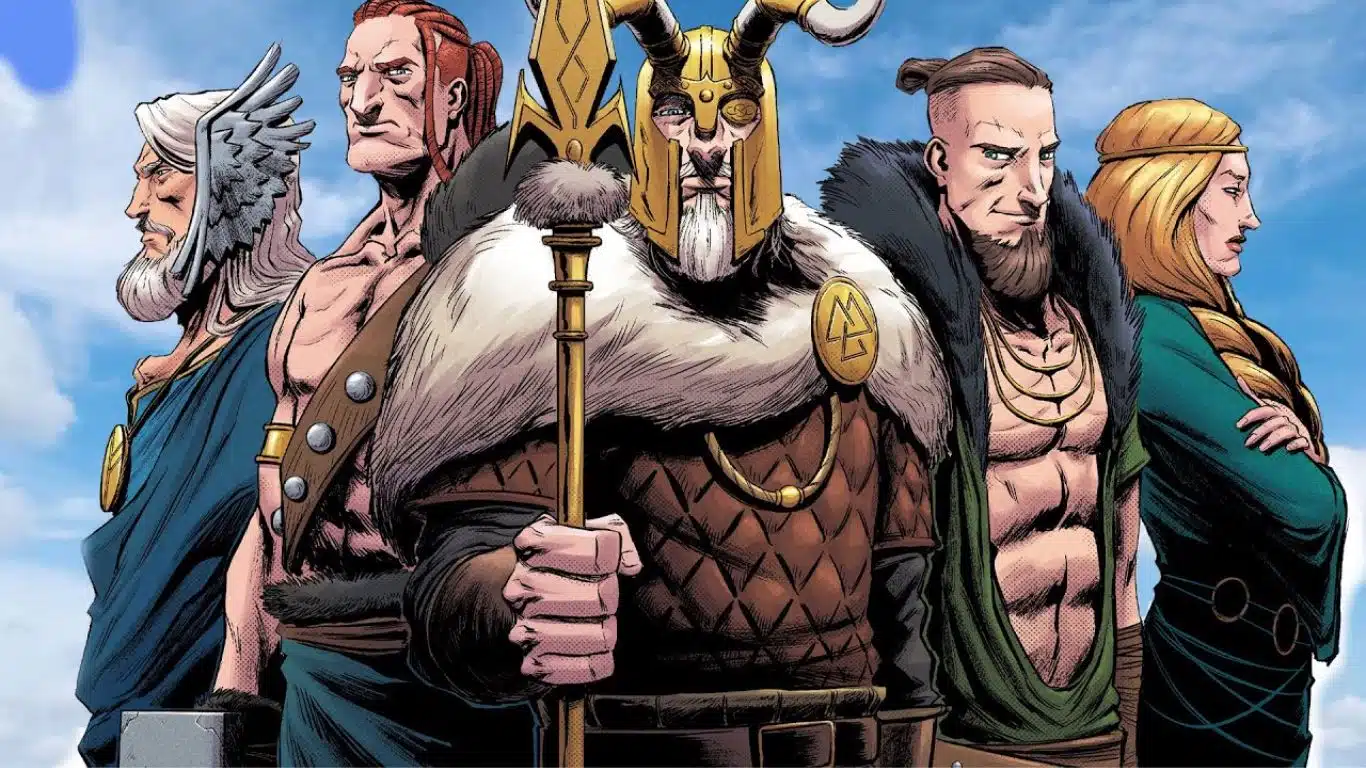
Norse mythology, also known as Scandinavian mythology, is the mythology of the Germanic peoples of Scandinavia and Germany, and it features a rich and complex pantheon of gods and goddesses. The Norse gods were numerous and diverse, with over 40 major gods and many minor deities.
Some of the most well-known gods and goddesses in Norse mythology include:
- Odin, the chief of the gods and god of wisdom, war, and death
- Thor, the god of thunder and strength
- Freyja, the goddess of love, fertility, and war
- Loki, the trickster god and god of mischief
- Hel, the goddess of the underworld and death
- Baldr, the god of light, beauty, and purity
- Freyr, the god of fertility, prosperity, and peace
In addition to the major gods and goddesses, there were also many other important figures in Norse mythology, such as the Valkyries, the Norns, and the giants. The Norse gods and goddesses were often depicted as powerful and complex beings, with their own personalities, emotions, and motivations.
The Norse mythology was a central aspect of the daily life and culture of the Norse people, who believed that the gods and goddesses played a role in almost every aspect of life, from agriculture and hunting to war and death. They offered sacrifices, prayers, and rituals to honor the gods and goddesses and seek their favor and protection.
Norse mythology has had a lasting impact on popular culture, with many modern works of literature, film, and other media drawing inspiration from its rich and complex world of gods, goddesses, and mythology.
Celtic mythology
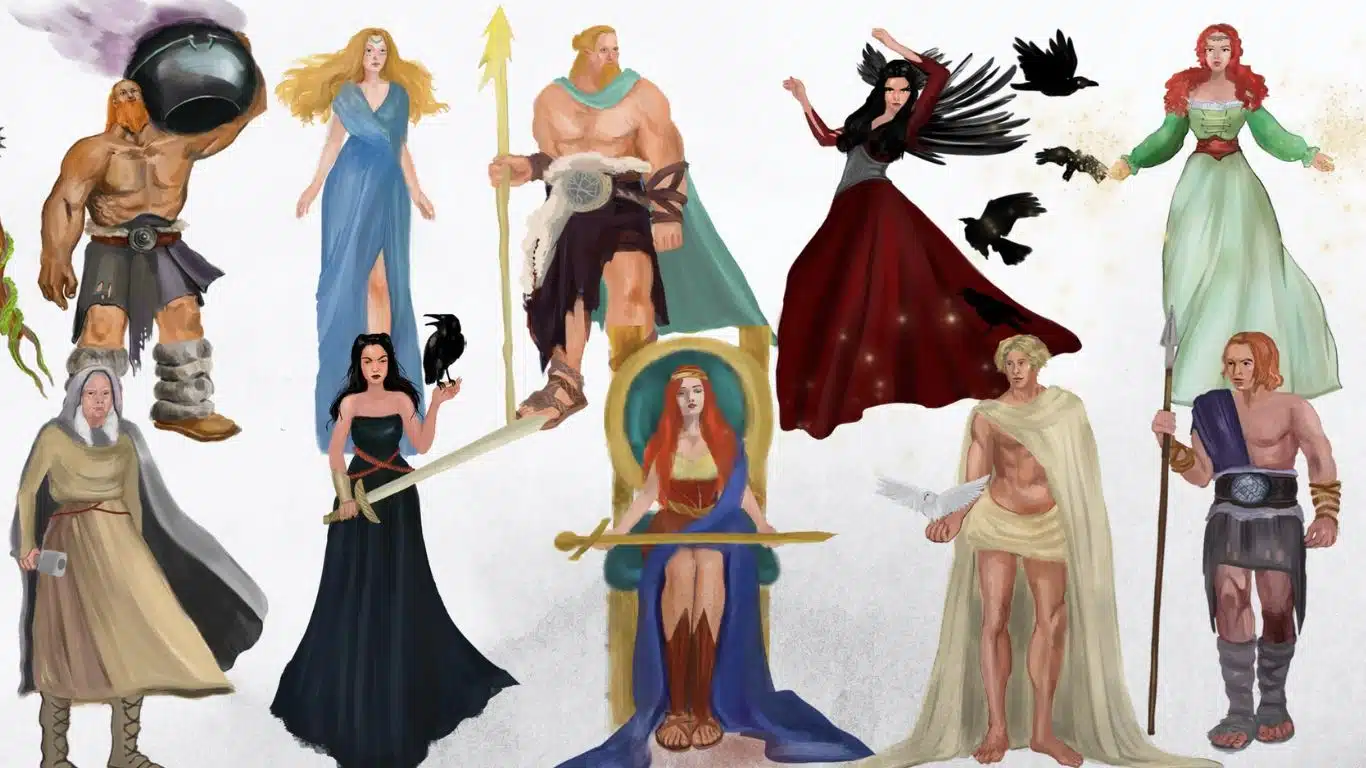
Celtic mythology is the mythology of the Celts, a group of Indo-European peoples who lived in central and western Europe during the Iron Age and medieval periods. They believe to have more than 400 goods and goddesses.
Many of the Celtic gods and goddesses were associated with natural phenomena and elements, such as the sun, moon, stars, earth, water, and sky. Others were associated with specific activities or aspects of life, such as war, love, healing, poetry, and craftsmanship.
Some of the most well-known gods and goddesses in Celtic mythology include:
- Lugh, the god of light, music, and crafts
- Brigid, the goddess of poetry, healing, and smithcraft
- Danu, the mother goddess of the Tuatha Dé Danann, a mythical race of beings in Celtic mythology
- Cernunnos, the god of animals, fertility, and the underworld
- Morrigan, the goddess of war, death, and prophecy
- Aine, the goddess of love, fertility, and the harvest
In addition to the major gods and goddesses, there were also many other important figures in Celtic mythology, such as heroes, saints, and spirits. The Celts believed that the gods and goddesses played a role in almost every aspect of life, and they offered sacrifices, prayers, and rituals to honor them and seek their protection and favor.
Japanese mythology
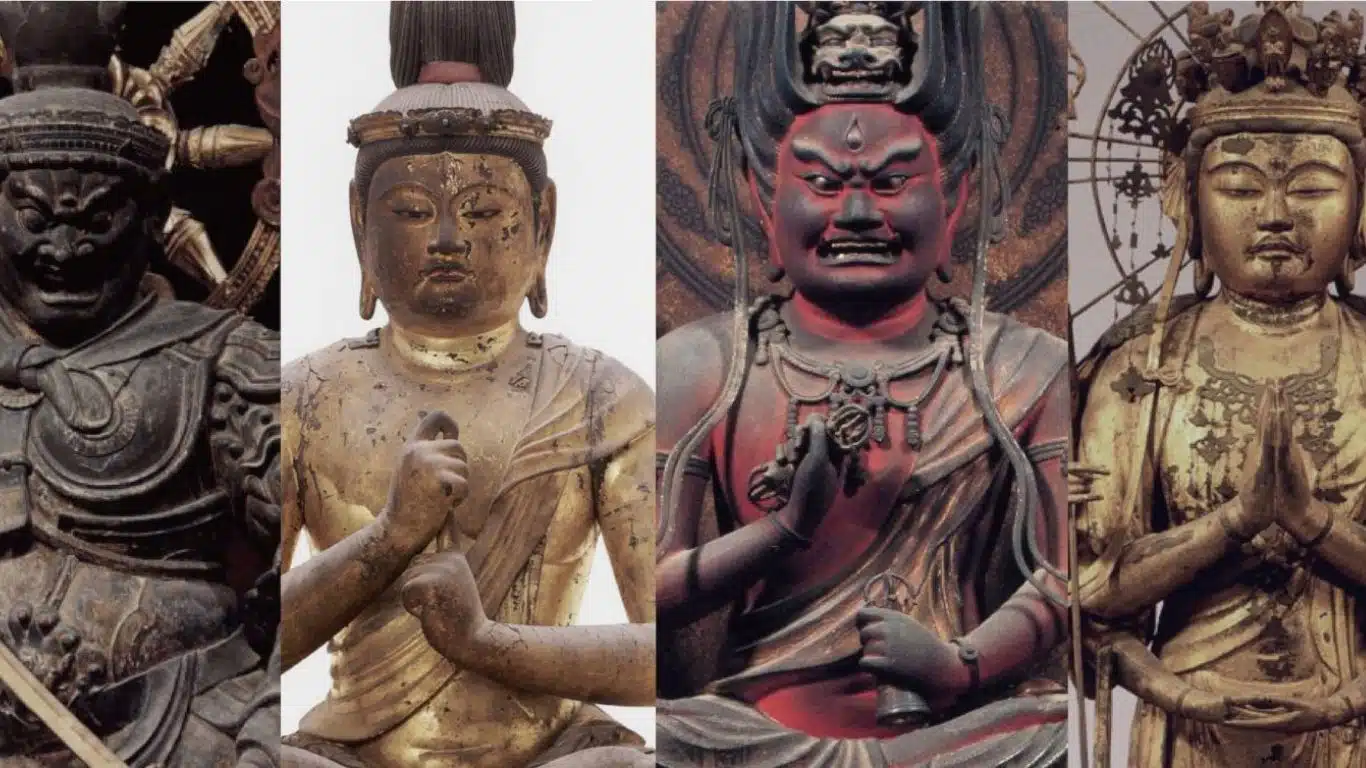
Japanese mythology is the mythology of Japan, and it is closely tied to Shintoism, the indigenous religion of Japan. Shintoism has a large number of kami, or gods and goddesses, with estimates ranging from 8 million to 300 million.
The kami are often associated with natural phenomena and elements, such as mountains, rivers, trees, and animals, as well as with important cultural and historical figures, such as emperors and warriors. Some of the most well-known kami in Japanese mythology include:
- Amaterasu, the goddess of the sun and the ruler of the heavens
- Susanoo, the god of storms and the sea
- Tsukuyomi, the god of the moon and the night
- Inari, the god of rice and agriculture
- Hachiman, the god of war and the protector of Japan
- Izanami and Izanagi, the creator deities who gave birth to the islands of Japan
In addition to the kami, there are also many other supernatural beings in Japanese mythology, such as yokai (monsters and spirits) and oni (demons).
Japanese mythology has had a profound impact on Japanese culture, art, and literature, and it continues to influence modern-day Japanese society. Many aspects of Japanese culture, such as traditional festivals, rituals, and beliefs, are deeply rooted in Shintoism and Japanese mythology.
Chinese mythology
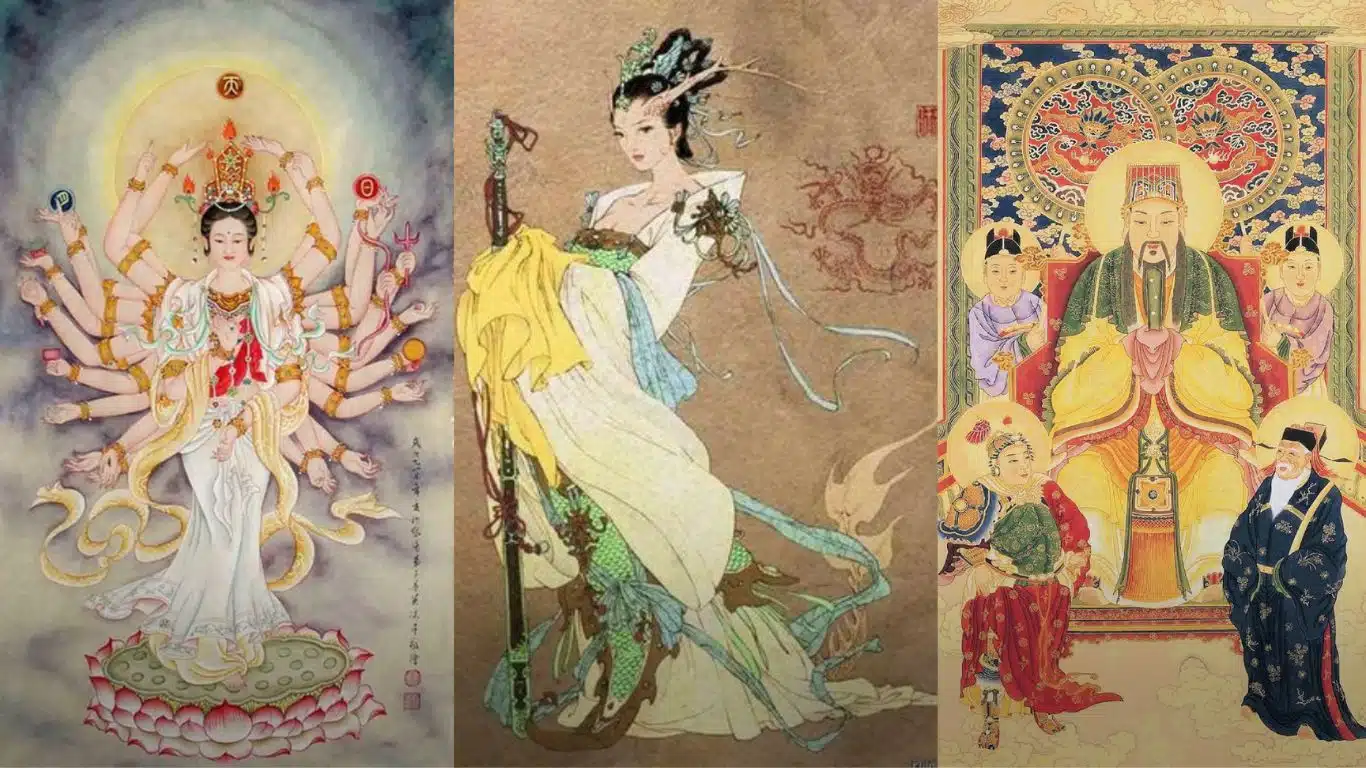
Chinese mythology is the mythology of China, and it has a vast pantheon of gods and goddesses, with over 1,000 recorded deities. These deities are often associated with natural phenomena, such as the sun, moon, and stars, as well as with important cultural and historical figures.
Some of the most well-known gods and goddesses in Chinese mythology include:
- Pangu, the first living being who created the world
- Nuwa, the goddess who created humanity and repaired the sky
- Fuxi, the god who taught humanity skills and knowledge
- Shennong, the god of agriculture and medicine
- Guanyin, the goddess of mercy and compassion
- Zhong Kui, the demon queller who protects against evil spirits
In addition to these deities, there are also many other supernatural beings in Chinese mythology, such as dragons, phoenixes, and qilin (a mythical creature resembling a unicorn).
Chinese mythology has had a profound impact on Chinese culture, art, and literature. Many aspects of Chinese culture, such as traditional festivals, rituals, and beliefs, are deeply rooted in Chinese mythology. The Chinese zodiac, which is based on a cycle of 12 animals, is also a product of Chinese mythology.
Mesopotamian mythology
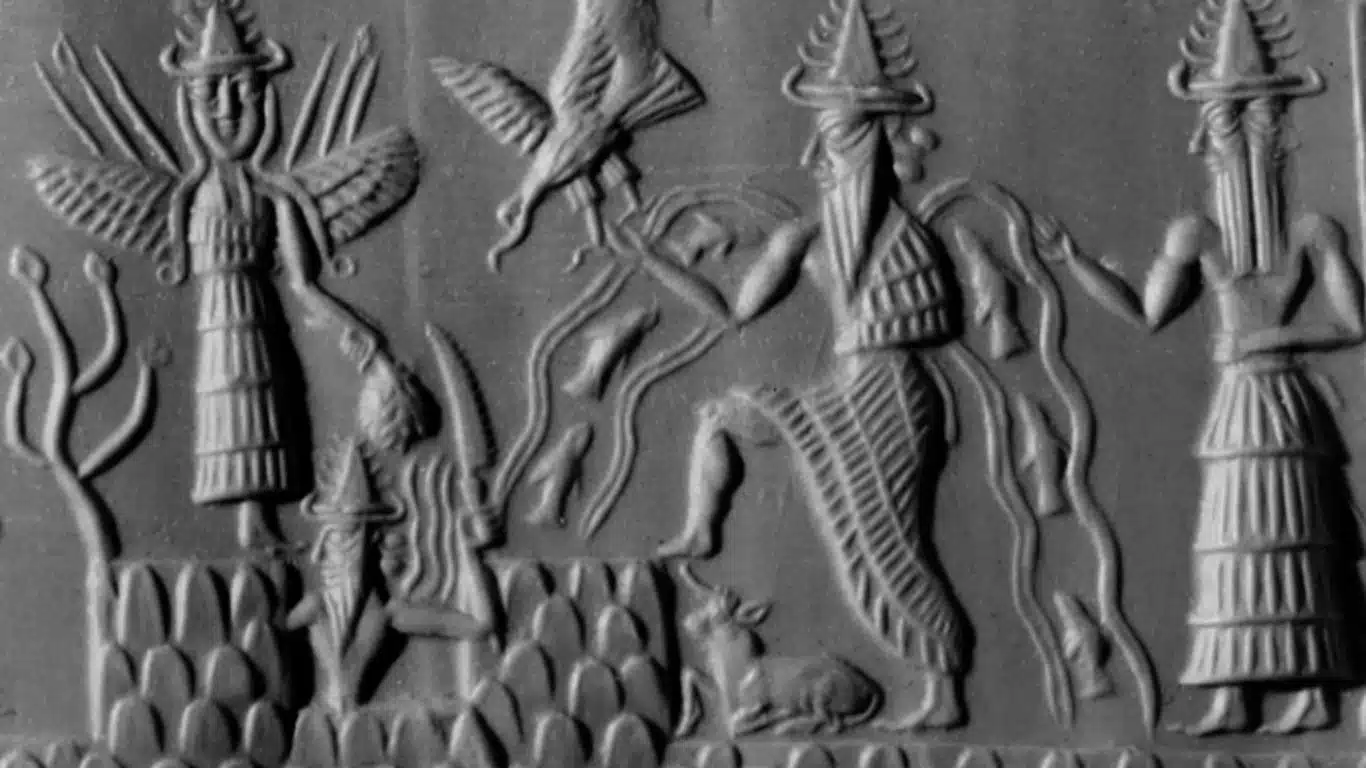
Mesopotamian mythology is the mythology of the ancient Mesopotamian civilization, which spanned the region of modern-day Iraq, Syria, and parts of Iran and Turkey. The Mesopotamians had a complex pantheon of gods and goddesses, with over 3,000 recorded deities.
Some of the most well-known gods and goddesses in Mesopotamian mythology include:
- Anu, the god of the sky and the king of the gods
- Enlil, the god of wind and storms
- Ea (or Enki), the god of wisdom and water
- Marduk, the god of Babylon and the patron deity of the city
- Inanna (or Ishtar), the goddess of love, fertility, and war
- Tiamat, the goddess of the sea and chaos
In addition to these major deities, there were also many other gods, goddesses, and demons in Mesopotamian mythology, each with their own unique characteristics and roles.
Mesopotamian mythology had a significant impact on the development of Western civilization, particularly on the religions and mythologies of ancient Greece and Rome. Many aspects of Mesopotamian mythology, such as the story of the flood and the creation of humans, have parallels in other ancient mythologies.
Aztec mythology
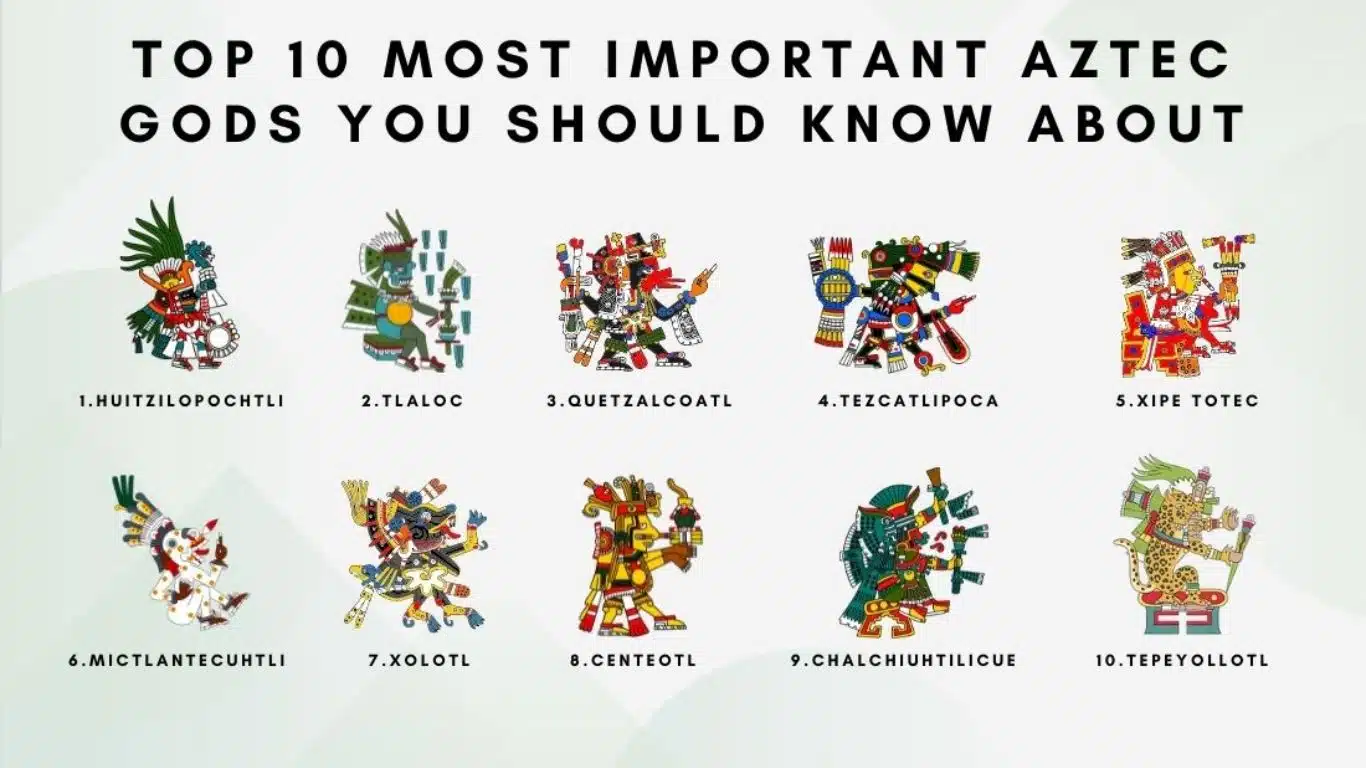
Aztec mythology is the mythology of the Aztec civilization, which flourished in central Mexico from the 14th to the 16th century. The Aztecs had a complex and large number of gods and goddesses, with estimates ranging from over 100 to several hundred deities.
Some of the most well-known gods and goddesses in Aztec mythology include:
- Huitzilopochtli, the god of war, the sun, and sacrifice, and the patron deity of the Aztec empire
- Quetzalcoatl, the feathered serpent god, who was associated with wisdom, fertility, and the morning star
- Tlaloc, the god of rain and fertility, who was also associated with death and the underworld
- Coatlicue, the goddess of the earth and fertility, who was depicted as a serpent with a skirt of snakes and a necklace of human hearts
- Xipe Totec, the god of agriculture and renewal, who was associated with the flaying of human skin
In addition to these major deities, there were also many other gods and goddesses in Aztec mythology, each with their own unique characteristics and roles.
Aztec mythology had a significant influence on the culture and religion of the Aztec people, and it continues to be an important part of Mexican and Mesoamerican heritage today. Many aspects of Aztec mythology, such as the importance of sacrifice and the concept of the afterlife, have parallels in other Mesoamerican cultures.
Also Read: The Greatest Archers in Mythology

